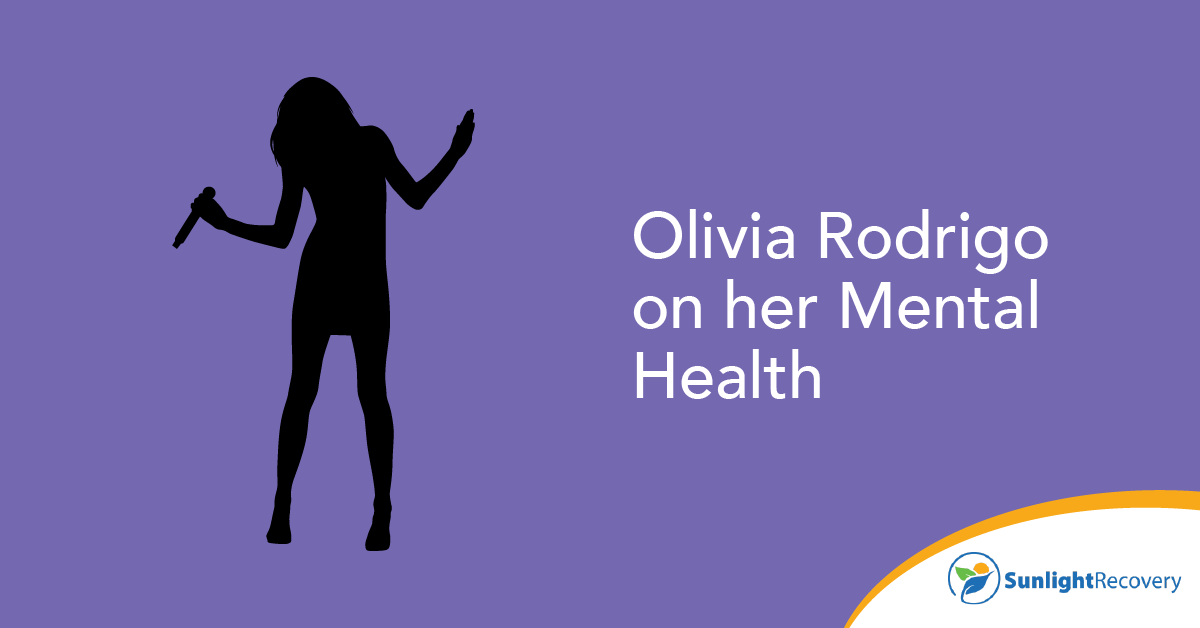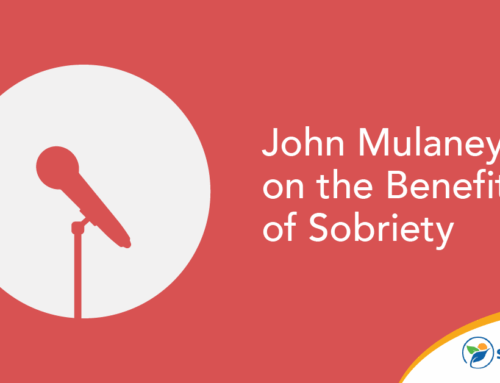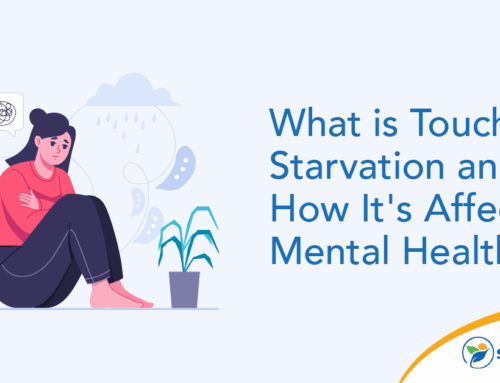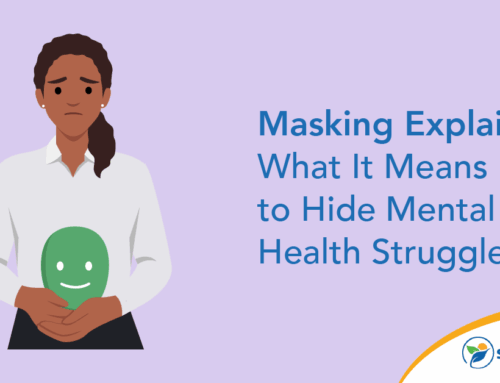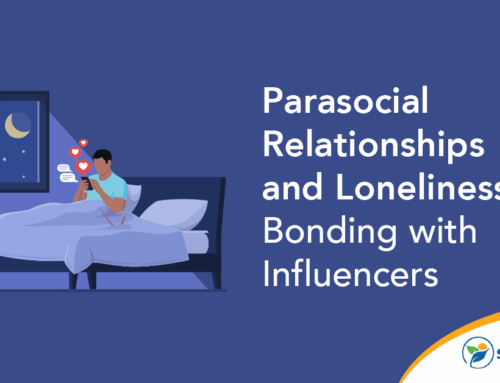Gen Z isn’t one to shy away from discussing mental health, and that includes its pop stars. One of the most famous Gen Z musicians, Olivia Rodrigo, has always been transparent and open about her mental health. Here’s everything we know about Olivia Rodrigo’s anxiety and mental health, as shared by the artist herself.
Skyrocketing to Fame
At 17 years old, Olivia Rodrigo released a song called “Driver’s License” that skyrocketed her into fame. The song soon became one of the most-streamed songs on Spotify worldwide.
Even though Olivia had been acting since childhood and was somewhat accustomed to Hollywood life, this level of success changed her life. In an instant, she became an internationally recognized singer and songwriter. This overnight fame would be challenging for anyone to get used to, let alone a teenager.
Olivia Rodrigo’s Anxiety and Mental Health: What She’s Said
Olivia’s father is a family therapist, so it’s no surprise the young artist has such a positive perspective on therapy. She publicly shared that she first started therapy at 16, saying, “I hadn’t really started going [to therapy] ‘til I was like 16, and that was a big, life-changing moment. I’ve learned so much about myself.”
Olivia has pushed back on the stigma that often surrounds mental health treatment. “I think sometimes there’s a stigma around it, too … Sometimes people are like, ‘Oh, you don’t need [therapy]. You have so much. Your life is so great. What are your problems?’ I think that’s definitely a thing that sometimes older people can do to younger people — kind of trivialize what they’re going through just because, you know, ‘Ah, they’re fine, they’re just kids. They’ll get through it.’ But it feels so real when you’re in it. It’s so valid.”
The singer admits she doesn’t struggle with depression despite the sad angle many of her songs take. “A lot of people think, listening to my music, that I’m a really sad, depressed person, and that couldn’t be farther from the truth. [I’m] definitely not at all crying on my bedroom floor all the time.”
Even so, she understands that mental health should be prioritized. And Olivia has certainly addressed how fame has taken its toll on her. “I’m taking [fame] one step at a time. It can be really tough on your mental health, though. I’m grateful for the people who like me for me and keep me separated from all the noise and tabloids or what people are saying about me on social media. That’s always been a top priority.”
The Impact of Sudden Fame on Young Artists
Olivia isn’t the first — or last — young celebrity to discuss how an artist’s mental health in the music industry can suffer. Musicians like Demi Lovato, Britney Spears and Aaron Carter are all examples of how fame can be destructive to a young celebrity’s mental health and well-being.
Being famous may come with many benefits, including wealth, access to opportunities and crowds of adoring fans, but there’s a dark side, too. Celebrities must deal with the pressures of their fans’ expectations and the loss of privacy and face harsh criticism online and in tabloids.
Many stars turn to drugs and alcohol to cope with challenges. But substances can be dangerous, and being famous doesn’t shield you from addiction or overdose. A shocking 38.6% of illegal drug users in the United States have a drug disorder. Using substances as a way to manage stress isn’t a healthy or safe long-term solution.
Instead, therapy is the answer. In therapy, you learn coping strategies so you can handle difficult situations as they arise, which can help reduce reliance on self-medication or other destructive behaviors.
Luckily, Olivia has a support system around her that’s further validated this rhetoric. The young musician has even shared that fellow artists have offered her advice on how to stay safe. Olivia told Variety, “I met Selena, and she was so kind. She talked to me a lot about prioritizing mental health, which I think is really important in this industry. All of us were in the limelight very young. … That can be taxing on your psyche and can bring about all these weird issues.”
How She Balances Career, Privacy and Well-Being
It may seem like Olivia’s success happened overnight, but it took years of dedication and hard work. The young artist has been writing songs since she was little. She reflects on this journey, saying, “I kind of had overnight success. I’d been working on songs for years and preparing for that moment for a long time. But in many respects, it was very instantaneous, and so taking things slower was my way of coping.”
Now that fame has arrived, she tries to focus on what truly matters: being authentic to herself and her fans and knowing where to draw the line. In one interview, she shared that she worked hard in therapy to learn how to keep her personal identity separate from her celebrity persona. “I’m happiest when I can separate the two.”
Her first tour was the “ultimate practice” in learning how to divide her two worlds by equally enjoying being a performer onstage and loving being able “to be in my bus alone.” She’s aware of the potential risks that come with getting wrapped up in fame. “I think that’s why so many artists do drugs, because they’re trying to recreate that high of being on stage.”
As is the case with any 20-something, Olivia is still figuring things out. She’s navigating new stardom and ambitions, a desire for privacy and a commitment to maintaining her mental and physical well-being.
Her love for therapy extends beyond simply attending sessions regularly herself. In 2025, Olivia’s guitarist shared that the singer provided her entire tour staff with “accessible and free therapy” throughout the tour.
What We Can Learn From Olivia Rodrigo’s Perspective
Younger generations have certainly embraced therapy and prioritized mental health in a commendable way. Still, it sometimes takes a person in the spotlight to remind the rest of us it’s okay to ask for help. Olivia Rodrigo is a shining example of someone who highlights the importance of therapy at all stages of life. She might not be suffering from depression or an addiction, but she still goes to therapy to keep herself in check.
Therapy is important for everyone. You don’t have to be having a mental health emergency to seek help. Talking to a counselor can help you develop the coping skills you’ll need when you experience challenges later on.
If you’re interested in starting therapy, Sunlight Recovery can help. Our licensed, experienced and compassionate counselors have helped hundreds of patients with all kinds of mental health issues. Contact us today to learn how you can get started.


